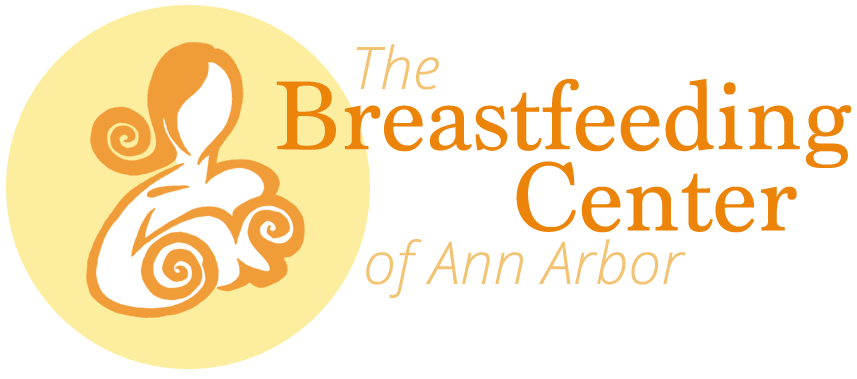Donating to the Bronson’s Mother’s Milk Bank is easy! The first step is an in-depth phone screening with Bronson Hospital and a simple blood test. Finally, pick up or have delivered any supplies you need, pump, and ship your milk! Bronson makes it super easy to ship, so don’t worry about this step. If for some reason you do not qualify as a donor for Bronson’s Mother’s Milk Bank, contact Barbara …
Who donates their milk?
Milk donors are the foundation of our milk depot. Donors are healthy women who set aside time to express extra milk for the good of other babies. Donors must have a healthy lifestyle and be willing to have blood tests to rule out infectious diseases. …
What is a milk bank?
A donor human milk bank welcomes a mother’s extra milk. A human milk bank carefully screens healthy breastfeeding women and accepts their donations of surplus milk. The milk is then pasteurized and tested to make sure that no bacteria exist, and frozen until it is prescribed by a physician for a baby in need. …
Could my lactation services or breast pump be covered by my insurance?
Yes! Love it or hate it, the Affordable Care Act is great for breastfeeding! Breast pumps are a required benefit but your company could provide you with the best pump available or a simple hand pump. Covering lactation services is also a required benefit. We may be able to bill your insurance company directly. If not, providing you with a hospital receipt with diagnostic codes makes it more …
Is the price for breastfeeding help worth it?
Best for Babes resoundingly says "Yes!" According to Best for Babes, "Last year, the New York Times published an article (by Amber McCann, IBCLC) about lactation consultant Freda Rosenfeld. A reader responded that the fee charged by lactation consultants is outrageous ... depending on where you live, it can cost between $120 and $200+ per session. It is wise for parents and parents-to-be to …
A private consult seems expensive, do I really need to do this?
I know, getting breastfeeding help does seem expensive! More and more insurance companies are providing reimbursal. We provide a hospital receipt with coding to submit to your insurance company. On the other, not breastfeeding is expensive. Baby formula costs at least $150.00 per month for at least 12 months if breastfeeding doesn’t work out. This is a cost of at least $1800.oo for a year. So, …
What is an Internationally Board Certified Lactation Consultant (I.B.C.L.C.) and why is certification important?
The IBCLC Certification is the only professional standard of competency in the lactation field. It is the official, international credential for those in the breastfeeding and lactation field. A combination of basic training, continuing education, practice with mothers and babies, and successful completion of the examination assures that the designation, IBCLC, identifies a member of the health …
What does a visit cost?
An in-office initial consultation is $170.00. We may be able to bill your insurance directly through Lactation Network (you can click the link and apply!) or if not, we will provide you a coded receipt to submit to your insurance for possible reimbursement. An initial consultation will take about one to one and a half hours to get a complete understanding of your breastfeeding needs. We are …
What are some of the differences between a consultation with The Breastfeeding Center and Barbara Robertson vs. others?
We are very well trained. Barbara has been working in this field for 21 years and is a total breastfeeding geek. She knows breastfeeding! We are kind and respectful. We want you to leave our visits feeling hopeful and empowered! Our visits are about 1.5 hours. We need this time to get a complete understanding of your breastfeeding needs. We offer our Breastfeeding Cafe on Fridays for you. …
What kinds of problems can you help with?
Sore nipples and/or breasts Latching and positioning issues Babies who can’t latch Worries about your breastmilk supply Preterm babies Twins Returning to work Issues with older babies …
What does a private consultation consist of?
Your private consultation will include: Compassionate and respectful care Full medical history of mother and baby Physical exam of mother’s breasts and baby Physical exam of the baby Pre and post test weights to determine milk transfer during feed Thorough evaluation of feeding Written care plan An insurance receipt for you to submit for possible reimbursal Follow-up …
Does every breastfeeding mother need to see a lactation consultant?
No. If a mother is comfortable and the baby is getting plenty of milk, then they are already successful! …
I see you are only available by appointment for many of your services. How soon can I get it?
Once you contact us we try to see you within 24-48 hours. We know how worried and scared families can be so you need help ASAP. Being able to schedule consultations and retail support when it is convenient for everyone has been working really well. …
Where are you located?
2300 Washtenaw Ave, Suite 200, Ann Arbor, MI 48104. View on Google Maps. …
What services does The Breastfeeding Center of Ann Arbor provide?
We provide private breastfeeding consultations, prenatal breastfeeding classes, free, drop-in support groups, and professional training for health care providers and doulas. …
